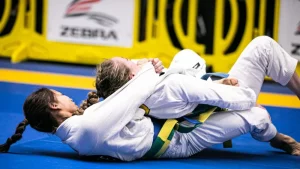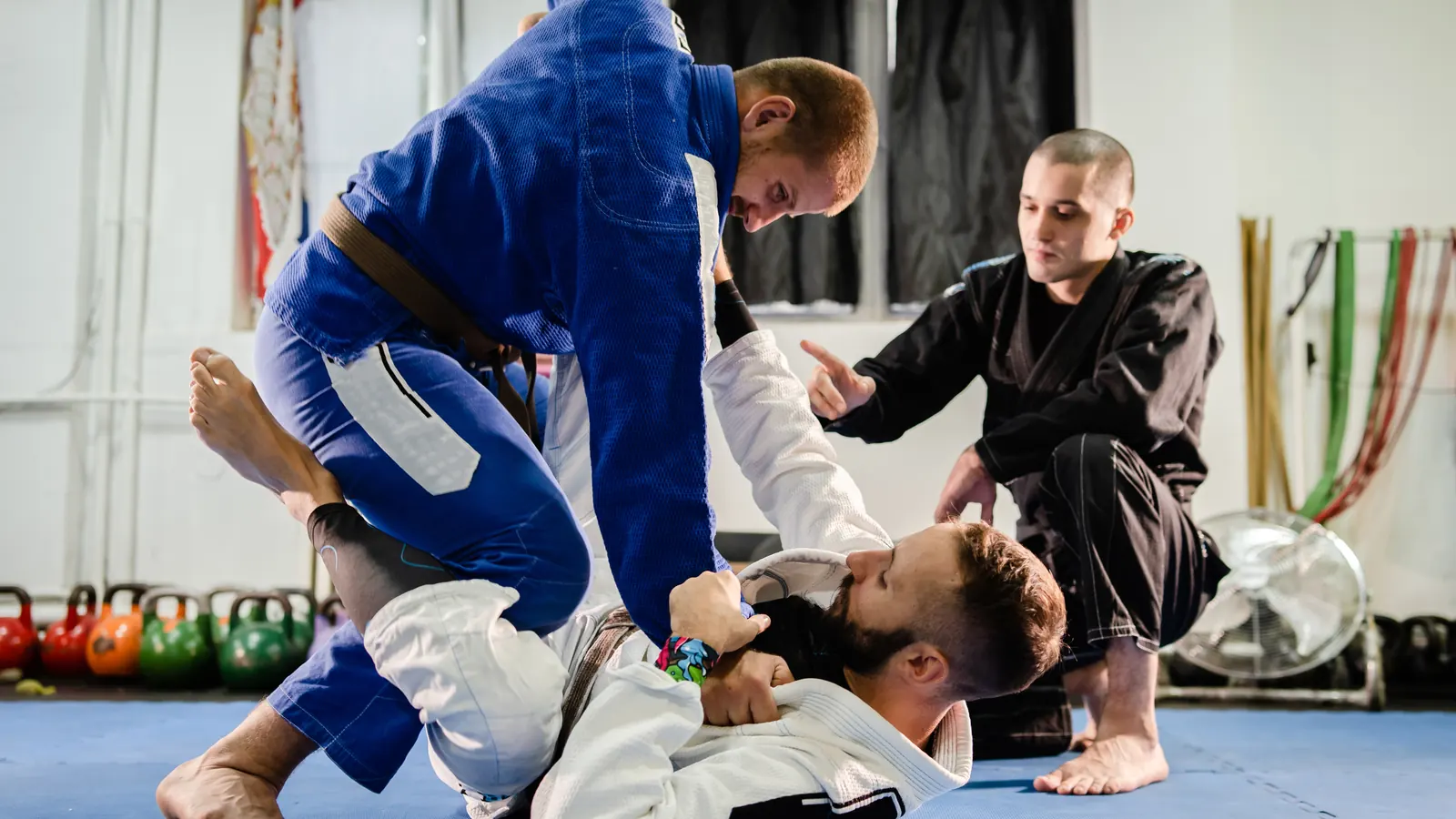Efficient Jiu Jitsu training is crucial for success at events. To optimize performance, effective strategies must be employed. This article explores various strategies for efficient Jiu Jitsu training at events. By implementing these strategies, practitioners can enhance their skills, technique, and overall performance. Proper planning, goal setting, and mindset are also vital for optimal results.
Efficient Jiu Jitsu training requires physical conditioning, technical proficiency, and mental fortitude. Therefore, this article provides valuable insights and practical tips to improve Jiu Jitsu training methods at events. By incorporating these strategies, practitioners can excel in the competitive world of Jiu Jitsu.
Key Takeaways
- Focus on mastering fundamental techniques and implementing strategic tactics
- Analyze opponents and adjust techniques accordingly
- Prioritize rest and recovery in between training sessions and events
- Incorporate specific training exercises targeting areas of weakness and incorporate high-intensity interval training (HIIT)
Importance of Efficient Jiu Jitsu Training
The importance of efficient Jiu Jitsu training lies in its ability to enhance performance and optimize results for practitioners at events. Jiu Jitsu is a highly demanding martial art that requires a combination of technical skills, physical fitness, and mental agility. By training efficiently, practitioners can improve their technique, build strength and endurance, and develop a strategic mindset that is crucial for success in competitive events.
Efficient Jiu Jitsu training enables practitioners to maximize their training time and resources. By focusing on specific techniques, drills, and conditioning exercises that directly contribute to their goals, practitioners can make the most of their training sessions. This allows them to progress at a faster rate and achieve higher levels of proficiency in a shorter period of time.
Furthermore, efficient training helps practitioners avoid burnout and overtraining. By carefully planning and structuring their training sessions, practitioners can ensure that they are training effectively without putting excessive strain on their bodies. This reduces the risk of injuries and allows for consistent progress over time.
Key Elements for Effective Jiu Jitsu Training
To achieve effective Jiu Jitsu training, practitioners must focus on mastering the fundamental techniques and implementing strategic tactics throughout their practice sessions. These key elements are essential for developing a strong foundation and improving overall performance in Jiu Jitsu.
First and foremost, mastering the fundamental techniques is crucial. Practitioners should spend ample time learning and perfecting basic moves, such as escapes, submissions, and sweeps. By understanding and executing these techniques with precision and efficiency, practitioners can build a solid repertoire of skills that can be applied in various situations.
In addition to mastering the fundamentals, implementing strategic tactics is vital for effective Jiu Jitsu training. This involves analyzing and understanding different strategies and approaches to grappling. Practitioners should learn how to read their opponents, anticipate their moves, and adjust their techniques accordingly. By developing a strategic mindset, practitioners can maximize their chances of success during training and actual competitions.
Strategies to Optimize Jiu Jitsu Training at Events
In order to optimize Jiu Jitsu training at events, it is important to implement strategic training strategies. These strategies can help athletes make the most of their time and effort, ensuring that they are well-prepared and able to perform at their best during competitions.
One strategy is to focus on specific techniques or positions that are commonly used in competition. By honing these skills, athletes can gain a competitive edge and increase their chances of success.
Another strategy is to simulate competition scenarios during training. This can involve practicing against different opponents with varying styles and skill levels, as well as incorporating time limits and scoring systems. By replicating the intensity and pressure of competition, athletes can better prepare themselves mentally and physically.
Furthermore, it is important to prioritize rest and recovery in between training sessions and events. This allows the body to heal and recharge, reducing the risk of injury and improving overall performance.

Overcoming Common Challenges in Jiu Jitsu Training
Common challenges in Jiu Jitsu training can present obstacles for athletes striving to improve their skills and achieve success in competitions. It is important for practitioners to be aware of these challenges and develop strategies to overcome them.
Here are three common challenges in Jiu Jitsu training and tips on how to overcome them:
- Physical fatigue: Jiu Jitsu is a physically demanding sport that requires strength, endurance, and flexibility. Athletes may experience fatigue during training sessions, which can hinder their performance. To overcome physical fatigue, it is essential to maintain a balanced diet, get enough rest and recovery, and incorporate strength and conditioning exercises into your training routine.
- Mental blocks: Jiu Jitsu is not just a physical sport, but also a mental one. Athletes may face mental blocks that prevent them from executing techniques effectively or taking risks during training. To overcome mental blocks, it is important to practice mindfulness and visualization techniques, set realistic goals, and maintain a positive mindset.
- Injury prevention: Injuries are common in Jiu Jitsu due to the physical nature of the sport. To prevent injuries, athletes should focus on proper warm-up and cool-down routines, listen to their bodies, and seek professional guidance for technique improvement and injury prevention exercises.
Maximizing Performance Through Efficient Jiu Jitsu Training Techniques
Through the implementation of efficient Jiu Jitsu training techniques, athletes can optimize their performance and achieve their full potential. Maximizing performance in Jiu Jitsu requires a combination of physical conditioning, technical skill development, and mental focus.
One key technique is to prioritize specific training exercises that target the areas of weakness or improvement. This allows athletes to work on their weaknesses and develop a well-rounded skill set.
Another technique is to incorporate high-intensity interval training (HIIT) into training sessions, which helps to improve cardiovascular fitness and endurance.
Additionally, athletes should focus on proper nutrition and hydration to fuel their bodies and aid in recovery.
Rest and recovery are equally important in maximizing performance, as they allow the body to repair and rebuild.
Frequently Asked Questions
How Can Efficient Jiu Jitsu Training Benefit My Overall Performance?
Efficient jiu jitsu training can greatly benefit overall performance by improving technique, increasing strength and endurance, enhancing flexibility, and honing mental focus. It allows practitioners to maximize their potential and excel in competitive events.
What Are Some Key Elements to Consider When Training in Jiu Jitsu?
When training in Jiu Jitsu, it is essential to consider key elements such as technique, conditioning, strategy, and mental preparation. These elements contribute to a well-rounded training approach that can enhance performance at events.
How Can I Optimize My Jiu Jitsu Training Specifically for Events?
To optimize Jiu Jitsu training for events, focus on developing specific techniques and strategies that are effective in competitive settings. This may involve studying opponents, refining timing and precision, and implementing game plans tailored to event scenarios.
What Are Some Common Challenges That Practitioners Face in Jiu Jitsu Training, and How Can They Be Overcome?
Practitioners of Jiu Jitsu often face challenges in their training, such as physical exhaustion, mental fatigue, and difficulty in learning new techniques. These challenges can be overcome through proper conditioning, mental preparation, and consistent practice.
What Techniques Can I Use to Maximize My Performance in Jiu Jitsu Through Efficient Training?
To maximize performance in Jiu Jitsu through efficient training, practitioners can focus on technique refinement, physical conditioning, mental preparation, and strategic game planning. Consistency, proper recovery, and seeking guidance from experienced coaches are also essential for optimal results.
Conclusion
In conclusion, efficient Jiu Jitsu training at events requires a combination of physical conditioning, technical proficiency, and mental fortitude. By understanding the importance of proper planning, goal setting, and mindset, practitioners can optimize their performance on the mat.
Utilizing strategies such as effective goal-setting, consistent drilling, and competition-specific training can enhance skills and technique. Overcoming common challenges in Jiu Jitsu training and maximizing performance through efficient training techniques are crucial for success in the competitive world of Jiu Jitsu.
You May Also Like:

